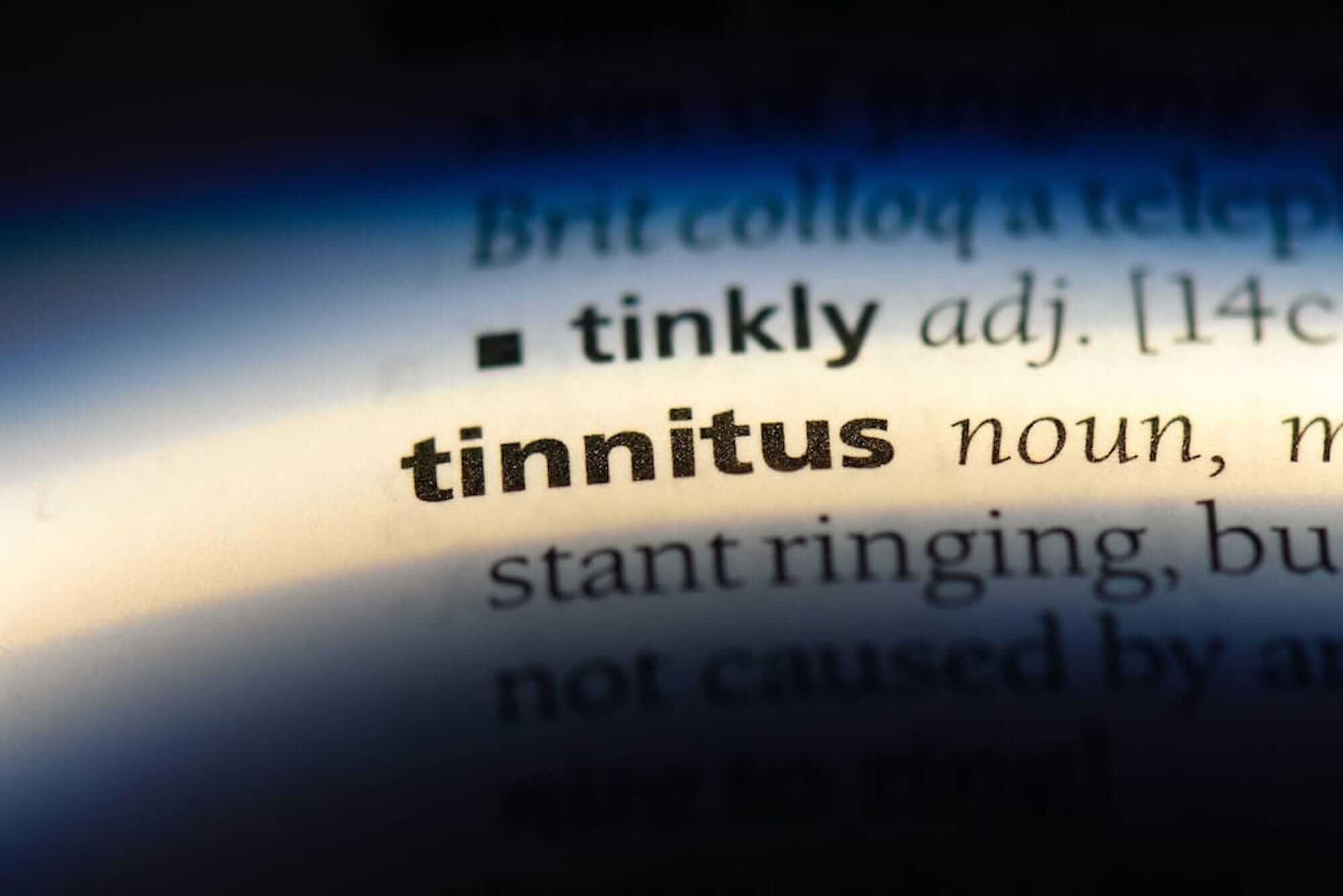Scientists have discovered that tinnitus, or “ringing in the ears,” involves many more areas of the brain than just those involved with hearing. Experts explain why the findings mean it will be difficult to develop treatments for tinnitus, and what sufferers can do now.
Guest Information:
- Dr. Richard Salvi, Distinguished Professor of Communicative Disorders and Sciences, University at Buffalo
- Dr. Phillip Gander, University of Iowa
Your Brain With Tinnitus
Reed Pence: Everyone knows what it feels like to want nothing but peace and quiet. For millions of Americans, however, this kind of silence is an unattainable dream because they have a ringing or buzzing in the ears that never goes away. It’s called tinnitus, and it’s extremely common. But for some, tinnitus can be devastating.
Richard Salvi: Roughly around 12 percent of people experience tinnitus. They’re not really the big problem. There’s about roughly one percent of the adult population that has pretty severe tinnitus. They go and seek medical treatment and most of the time they’re told they have to learn to deal with it.
Pence: That’s Dr. Richard Salvi, Distinguished Professor Of Communicative Disorders And Sciences at the University at Buffalo. He says the 1% with extreme tinnitus are in severe need of effective treatment plans.
Salvi: The tinnitus can be very loud, intrusive, and it can lead to social isolation, depression, and it can be extremely bothersome. One gentleman I know here in Buffalo, he went into a state of depression for roughly two years before he got some sort of treatment and improved.
PENCE: Salvi says one demographic is especially at risk for developing tinnitus. Their needs are pushing the search for tinnitus treatments to the forefront of neuroscientists’ research.
Salvi: It’s really common among military personnel, especially combat personnel. So if you were to evaluate the people that were in the Gulf War or over in Afghanistan, and you’re looked at the combat personnel, the people that fire the mortars and heavy artillery and the machine guns, roughly about 50 percent of those people develop hearing loss with severe tinnitus. These people don’t get any compensation when they’re in the army, but after they retire and they get their medical treatment at the VA hospital system, the VA ends up paying the disability payments for people that have tinnitus. The last few years they’ve paid out disability payments approaching $2 billion per year.
Pence: For years, experts believed that tinnitus affects only the hearing areas of the brain because the condition is primarily caused by damage to the hair cells of the inner ear. However, two recent studies find that tinnitus affects many more areas of the brain than expected. One of those studies was authored by Dr. Phillip Gander of the University of Iowa. Gander implanted electrodes into the brain of a patient who suffered from both epilepsy and tinnitus to monitor which parts of the brain were activated by his disorders.
Phillip Gander: In particular, we compared a sound, which we matched to his description of his tinnitus, and looked at the brain activity in relation to him just hearing a sound that was like his tinnitus. It activated just a very small region of his brain seemed to respond to the sound, but when we then changed the volume of his tinnitus with an experimental manipulation, we found that a great number of brain regions were active. This told us that the experience of tinnitus is not like just simply hearing sound. What’s happening in the brain of someone who has tinnitus is not like they’re just hearing a sound that’s playing constantly. It’s more than that and it recruits a number of brain areas, not just those in the auditory cortex.
Pence: Gander says some of the areas of the brain involved in producing tinnitus shocked him and his team.
Gander: We found activity not only within the auditory cortex or hearing parts of the brain, but also areas of the brain that were involved in attention, memory, and general perception as well, not just related to sound processing. Importantly, emotional areas did seem to be highlighted as well.
Pence: So, how do all these areas of the brain work together to produce tinnitus? Gander says the condition begins in the auditory areas of the brain and then quickly spreads elsewhere.
Gander: What seems to be happening is that it triggers off a whole suite of changes along the auditory pathway and then they get locked in within the brain itself. It seems to recruit a large number of areas within the brain and they just sort of get stuck into processing these tinnitus sounds.
Pence: Once experts understood the complexity of brain processes which cause tinnitus, they realized why no one has been able to cure the disorder yet.
Gander: The reason why there’s currently no cure, and it seems to be very difficult to treat, is that it seems to recruit a large number of brain areas. And such that if you were going to use a treatment–and we might need to target not just one single area of the brain or in the pathway of tinnitus—so, you might think that you can just target the hearing areas of the brain, which some treatments currently do, but they have mixed success. And, at most, seem to work for maybe half the people. And that’s still really good, but it still doesn’t really help us understand why it is that the other half of people are not getting help.
Pence: These findings mirror those made by Dr. Salvi, which also show one way tinnitus can be especially devastating. He explains that tinnitus can activate parts of a patient’s brain at the wrong times. For example, tinnitus patients who complain about insomnia may be kept up at night by more than just the noise. They may also be suffering from a tinnitus that overstimulates a part of the brain called the reticular formation.
Salvi: The reticular formation is a part of the brain, it's kind of like a series of pipes that extend from the brain stem up the midbrain and this area of the reticular formation is an arousal area. This is a part of the brain that when a loud sound is turned on or a bright light, it activates the brain and gets the brain jazzed up and excited. Likewise, when you’re going to sleep, this is the part of the brain that basically, activity gets turned down. So, this was really a big surprise to us.
Pence: Similarly, tinnitus can trigger extra anxiety if it happens to stimulate the part of the brain which controls stress, called the amygdala. Salvi says that overall, these new studies just go to show how broad brain issues like tinnitus can be.
Salvi: Almost every disease, every neurological condition, epilepsy, pain. These people originally thought they were quite simple, but it turns out they’re far more complicated than we ever imagined. And the recognition that tinnitus is complex, that idea has grown over the last fifteen years.
Pence: Like Gander, Salvi says this research amounts to both good and bad news. It helps doctors begin the process of creating treatments but it also shows just how difficult those treatments will be to develop.
Salvi: We now can look at parts of the brain that are known to facilitate or be involved in these processes, but by identifying these parts of the brain it might give us some clues on drug therapies, for example, that might be used to calm down the amygdala or affect the cerebellum or affect the reticula formation. So, we might be able to treat certain aspects of the tinnitus, but I think it's going to be more complicated than we ever imagined.
Pence: Until a treatment or cure is developed, though, what does Salvi tell patients who come to him, desperate for tinnitus management options?
Salvi: There’s really not a single drug out there, none that’s been FDA approved for treatment of tinnitus, that really works for tinnitus, so I usually don’t recommend that for patients who call me. Probably the most respective treatment, especially for somebody who has hearing loss, is a hearing aid when you put a hearing aid on. What the hearing aid does is, often times, amplify the background noise in the room and in the environment, and this often times is enough to suppress your tinnitus, so one of the treatments for tinnitus is sound therapy. You can get that through a hearing aid.
Pence: In the end, though, Salvi stresses that people experiencing tinnitus should keep it simple and try to keep from dwelling on it.
Salvi: The counseling and education are basically to make tinnitus patients aware that this is not going to be be a debilitating condition. This is not a tumor growing in their brain, that if they don’t focus on the tinnitus and don’t listen for it, that they’re not gonna pay attention to it. By not attending to these internal phantom sounds, you can sometimes reduce the anxiety and the depression and the worry that goes along with curing the tinnutis.
Pence: But while tinnitus may not be physically harmful, both Gander and Salvi said they know what the stakes are. Until science finds a reliable treatment or cure, millions of Americans – many of them war veterans – will never know the comfort of true peace and quiet. You can find out more about all our guests and their research on our website… radiohealthjournal.net. Our writer this week is Evan Rook. I’m Reed Pence.
Sign up to receive email updates
Enter your name and email address below and I'll send you periodic updates about the podcast.











Leave a Reply